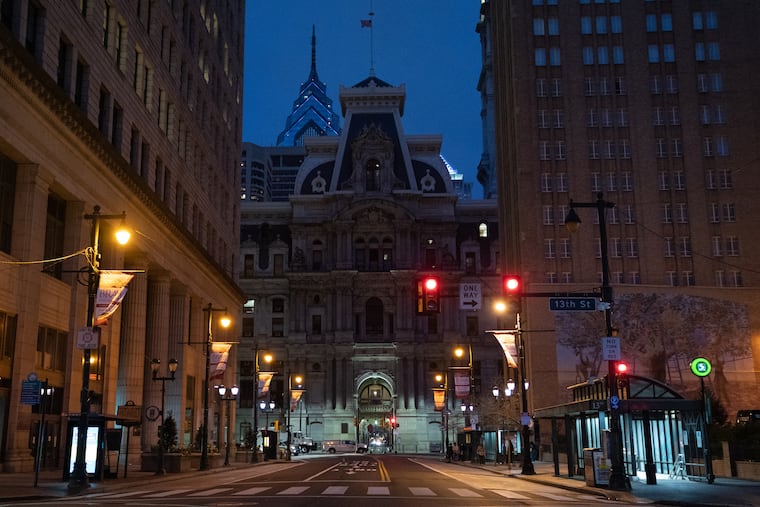Why do some city workers get a coronavirus cashout while regular Philadelphians flail? | Opinion
Some city workers deemed "essential" are getting extra pay to work from home.

In this trying time, would you take 50% more pay to work from home? That is essentially the question handed over to city workers by Mayor Jim Kenney, whose administration late last week announced a deal with the municipal unions to keep at least 15,000 city employees — a majority of our city’s workforce — employed as “essential” workers making time and a half as our nation’s economy collapses around us.
Many of these people are indeed essential and performing critical jobs in the field — trash collection, police work — risking their health to do so. But not over half of our city’s workforce. Some, in fact, are working from home, according to The Inquirer’s reporting: “Not all essential employees are being required to report to their workplaces,” with the city “encouraging departmental managers to let employees work from home.”
Just how many city employees are now receiving time and a half to work from home? The Mayor’s Office told me in a written statement that they “don’t have a precise count on ‘essential’ employees at this point” and that “some essential employees are continuing to work remotely” — they just don’t know how many and say that the (unknown) number is subject to change.
As regular Philadelphians face down the impossible decisions that come with a societal freefall, Mayor Kenney’s administration has unleashed a free-for-all where city department heads can designate, with unclear guardrails, whoever they want as “essential.”
Whole departments have been designated as such — no surprise, considering that there is always more money to spend, and the public has diverted its attention. From The Inquirer’s reporting, an anonymous health department employee who was deemed “essential” questioned whether she needs to be at work at all, and Cathy Scott, the head of AFSCME District Council 47, noted other workers have raised the same concerns.
Some city workers are already making well into six figures. And this policy comes at a time when regular workers across the city, from line cooks to cashiers to small-business owners, are staring down the barrel at potentially months of financial loss and inactivity.
Scott explained that the city “wanted to incentivize people to come to work, given how dire the circumstances are.” How about a sense of duty or getting the job done? What do you think nurses and truck drivers and home care aides are doing right now? Many are unhappy and fearful to be braving the uncertainty outside of their doors. But these are unhappy, fearful times for our nation, and we must get on because we have no other choice.
I am not quibbling with the city paying trash collectors and firefighters more as they dutifully perform essential work to their best abilities outside of the safety of their homes. But what possible explanation for paying people time and a half to work, some from the couch, besides utter incompetence and disdain for taxpayers, I cannot fathom.
I am a marketing consultant by trade. I simply cannot imagine what the reaction would be if I told my clients that, due to the circumstances, I would be charging time and half going forward. Oh, wait, I can imagine: I would no longer be “essential” to them, and would end up out of luck and out of work. Public sector jobs are the only ones that can compel the rest of us to pay for them, and they operate based on rules that do not exist elsewhere.
The city told me that they will “continue to adjust” who is deemed essential. Here’s an adjustment to make when the agreement expires on March 29, or better yet, at this very moment: If you are working from home, you should not be taking time and a half while the rest of the city suffers and our economy collapses. Period.
The fact that this even needs to be stated — that this wasn’t included in the original deal, during an unprecedented national movement to get people working from home — is a total indictment of the mayor’s scorn for everyday governance and responsible stewardship of our tax dollars.
In my last column, I asked if our city, in light of an abject failure to control costs as both overtime and personnel expenditures explode, is ready for an economic downturn.
With the Kenney administration cashing out to union allies in the face of a public health crisis, paying some public sector workers time and a half to sit at home while many go jobless, I think the question has been put to bed. No, Philadelphia is not ready for this downturn. No, our leadership cannot be trusted to prepare for it.